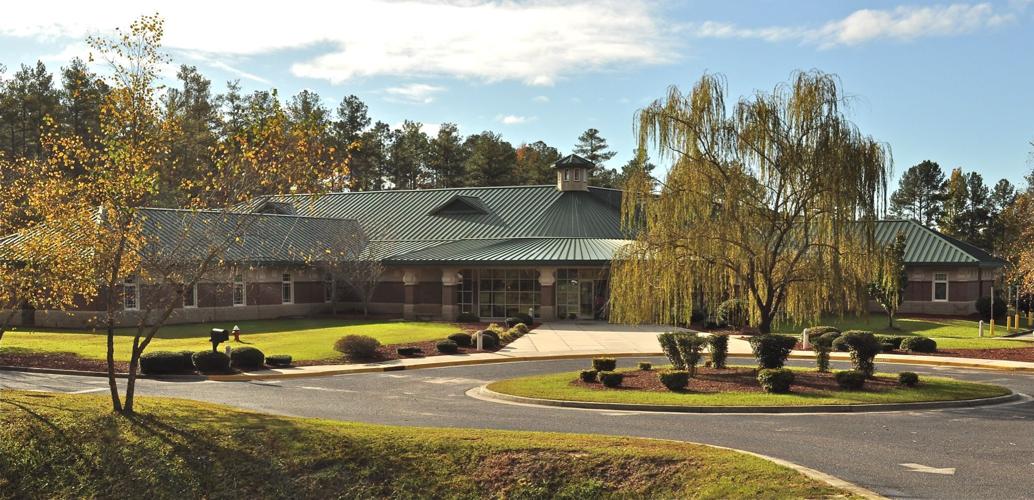One in five people will have a mental health diagnosis in their lifetime.
With May designated at National Mental Health Month, local professionals want residents to know that those illnesses are disorders of the brain, just like diabetes is a disorder of the pancreas; however, just like diabetes, mental health illnesses are treatable but are often stigmatized or misunderstood when they shouldn’t be.
Aiken Barnwell Mental Health Center is one of the local community mental health centers serving Aiken and is part of the South Carolina Department of Mental Health.
The center helps people with mental health issues and has continued to do so, even as COVID-19 has changed so much of the daily lives of people in Aiken County.
“We provide an array of behavioral health services, or mental health services to adults, children and family; and our mission is to support recovery of people with mental illness,” said Tamara Smith, executive director of the Aiken Barnwell Mental Health Center.
Those services include psychiatric medical assessments; crisis intervention services; individual, group and family treatment; peer support services and more. The center has been providing those services since 1965.
Understanding and stigma
“One in five people will have a mental health diagnosis, and that includes adults, adolescents and children,” Smith said. “Having good mental health is important because it’s going to impact our ability to think, feel and act; and, ultimately, that impacts our ability to function, to have relationships, to be able to work, just to be able to think, make decisions, and problem solve. So, it’s important that we take care of our mental health in order to do those things.”
Cindy Smith is a certified peer support specialist, and she lives with a mental health diagnosis as well as a co-occurring disorder.
She said mental health looks different than the stigmatic view that TV shows and songs can show, what she described as “crayon eating, window licking, just babbling fools.”
“People need to understand that living with a mental illness is not the absence of the mental illness but the management of the symptom. So we’re parents and we’re employed, and we’re productive members of the community, and we’re not in straight jackets and institutions. There is a new face to mental illness, it’s nothing to be scared of,” Cindy said.
She said she sees her mental health the same way she sees her physical health.
“I would like society to start realizing that you might be standing next to me in the bank or standing next to me in Walmart and you’re not going to know, and that’s OK. That mental health is manageable, it is treatable, and it’s hard work. Get invested in your treatment, and you apply yourself and you really work your behind off. It shouldn’t look the same to everybody as in the past,” she said.
Stay alert to signs
Signs that someone may be suffering from mental health problems mostly focus around changes in behavior.
Tamara said those can include people withdrawing from activities they once enjoyed, changes in school performance or acting out at school, and changes in work performance such as coming in late.
Sleep changes can also be a sign someone is struggling.
Just look for behavior changes, such as not being able to sleep or sleeping too much, changes in mood, difficulty concentrating or difficulty focusing, Tamara said.
"If your loved one started exhibiting that, or you start experiencing that, then it would be the time to reach out for some help and talk to someone,” Tamara said.
How to get help
Aiken Barnwell Mental Health provides resources for folks who need it, and is still doing so during the coronavirus pandemic.
Shannon Britt is the crisis coordinator for the center and handles initial intake services for people who reach out.
Britt said anyone in the community can call for someone else.
“A pastor can call for someone in their church, a parent can call for their adult child, a daughter can call for their mother,” she said.
She said, usually, when someone calls for another, it’s because that person is experiencing psychotic symptoms – delusions, paranoia, obsessions, hallucinations – or they’re experiencing suicidal ideation and they’re unwilling to reach out and get help themselves.
Britt said when she is able to speak with someone for the first time – via video chat right now – she can sometimes see that there’s an issue: their shoulders are drawn up or they’re frowning or crying.
Once she starts chatting with them, she said, and the more they talk about what therapy they can use and what services are available, there’s a visible change.
“Their shoulders kind of relax, their face goes into a different countenance, you see them smiling,” Britt said.
“I try to a least one or two times on the call to get them laughing and to kind of change that mood around, and it is truly just a 180 (degree) change with the patient knowing that, ‘Whew, finally I’m somewhere where I can get the help that I need, and there’s hope for my future.’”
The center’s access line phone number is 803-508-7913. The center also has a 24-hour, seven day a week crisis line manned by mental health professionals. That number is 1-833-364-2274. The Suicide Prevention Hotline is 1-800-273-8255.
The Aiken Barnwell Mental Health Center is at 1135 Gregg Hwy in Aiken. People can call ahead using 803-641-7700.
"We are asking persons in need of services to call prior to coming on site to ensure safety of our patients and staff," Tamara said.




